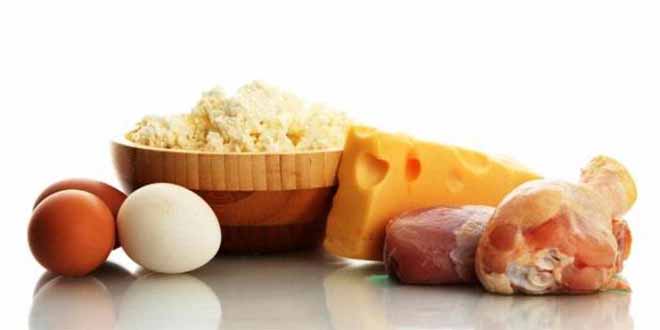
The Truth About Protein Diets
What are proteins? A protein actually is an important nutrient which is essential for the normal growth and development of our body. A molecule of protein constitutes of large chains of amino acids. There are 21 naturally occurring amino acids that are found in different kinds of foods. All these amino acides are an essential part of our dietary needs.
Proteins remain a very important nutrient and can be obtained from various dairy products and even from certain fruits and vegetables. For quite some time, protein diets are hailed as the diet which enables you to lose weight.
Though protein is important for your body and health, but you cannot survive on protein all your life. It is important to have a balanced diet even if you are trying to lose weight or working on your muscles.
If you are trying to lose weight you must bear in mind that it always comes down to your calorie count. If you are consuming more calories as compared to the amount that you should be consuming and burning even fewer calories, then obviously you are doing it wrong.
You must put in some workout and not stick to consuming more calories. Calories pile up in your body if you do not burn them no matter if they are coming from protein or any other source. Taking in your diet and then adding more protein to it would only increase the number of calories you are consuming.
A study published in the New England Journal of Medicine showed that four groups of dieter were made to diet on entirely different low calorie diet, and each diet had its on proportions of fat, proteins and carbohydrates. The results showed that all the four groups lost same amount of weight over a span of two years.
National Institute of Health reports that even the athletes don’t require very high protein diets, since muscle mass not directly related to the protein intake. So if athletes are trying to gain muscle mass than the protein need can be met with the increased caloric intake, which is essential for the muscle gain.
Protein is an important constituent of our cells, but we must consider cutting down on our protein intake. Excess of protein results in diarrhea, bone demineralization and kidney issues. An average American consumes the double amount of protein as compared to the recommended amount.
The secret of your health lies in moderation. So whenever you choose your food try to pick out not only the healthiest options but also those which are proportionate. Adding in moderate quantities of fat and good carbohydrates is healthy for you.
Your body needs other nutrients too apart from proteins. Moreover finding resort in the supplements is also not a healthy choice. You have to work on your eating habits because the supplements cannot make up for your poor diet. A good moderate, well proportioned diet would be healthy as compared to a diet based on just one nutrient. The supplements are heavy on your pocket too, thus disturbing your monthly budget. So be wise and add a bit of everything to your diet. This is what we recommend:
About 3 pounds [1.4 kg] of plant foods per day, including:
- About 1 pound [0.45 kg] of safe starches, such as white rice, potatoes, sweet potatoes, and taro;
- About 1 pound [0.45 kg] of sugary in-ground vegetables (such as beets or carrots), fruits, and berries;
- Low-calorie vegetables to taste, including fermented vegetables and green leafy vegetables.
One-half to one pound [0.25 to 0.5 kg] per day of meat or fish, which should include organ meats, and should be drawn primarily from:
- ruminants (beef, lamb, goat);
- birds (especially duck and wild or naturally raised birds);
- Shellfish and freshwater and marine fish.
Low omega-6 fats and oils from animal or tropical plant sources, to taste. Good sources include:
- butter, sour cream, beef tallow, duck fat;
- coconut milk or oil
palm oil, palm kernel oil, olive oil, avocado oil, macadamia nut butter, almond butter, cashew butter

